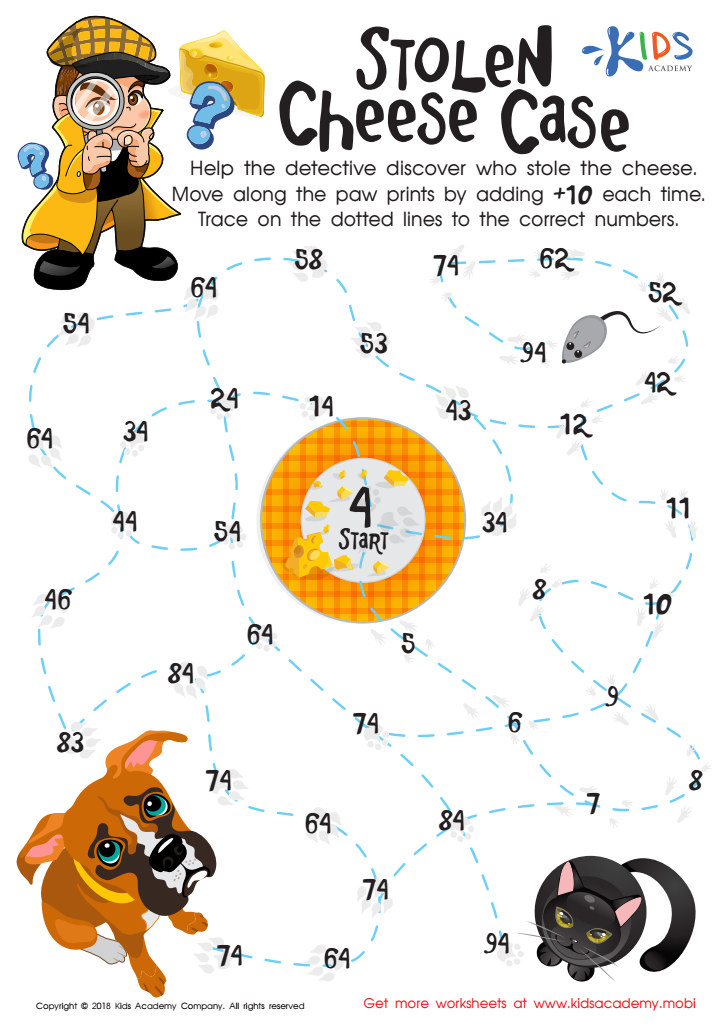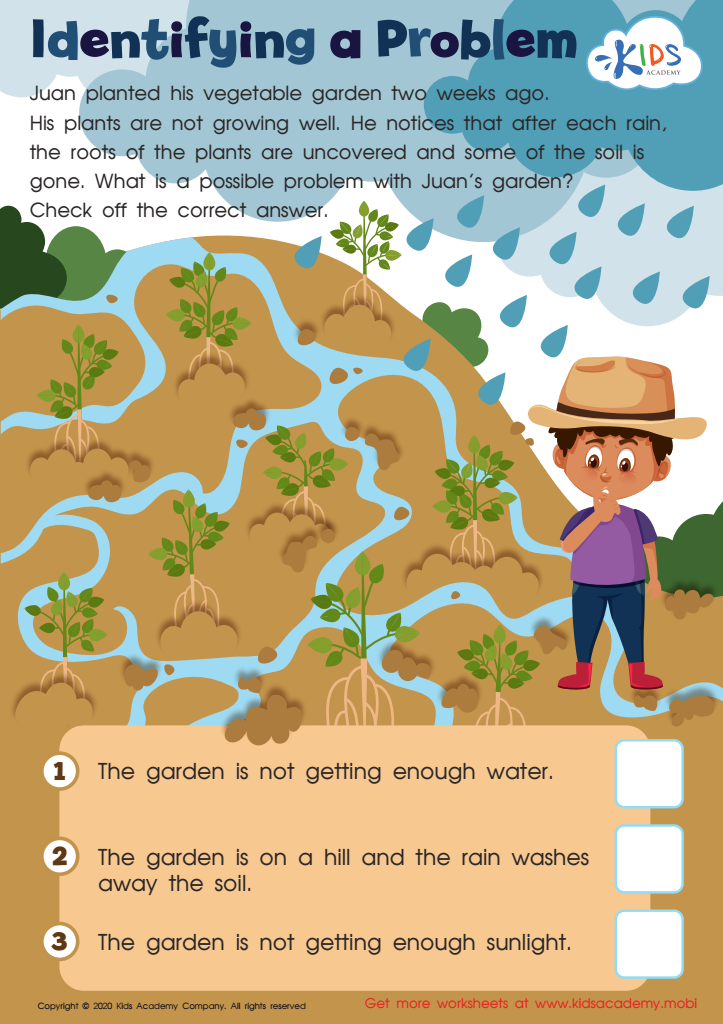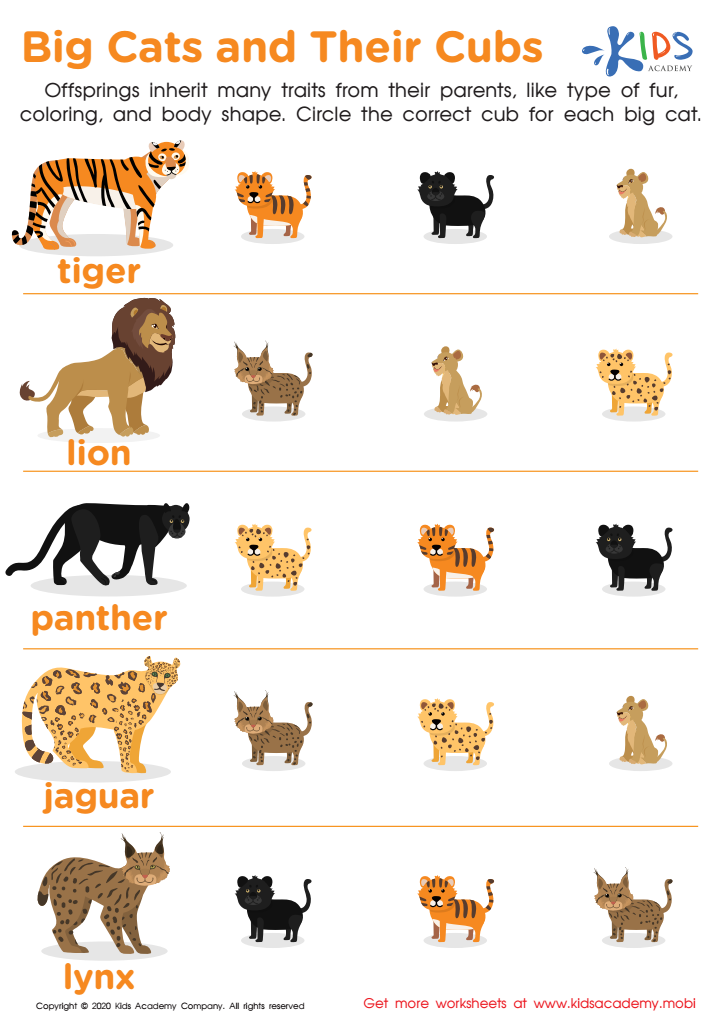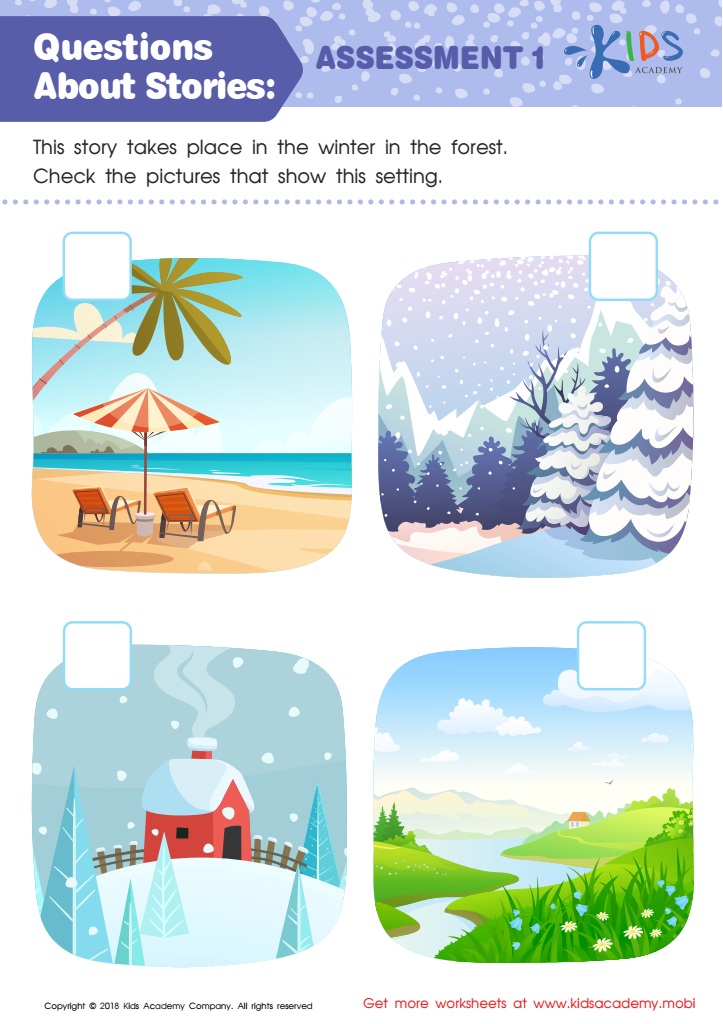Analytical skills Easy Worksheets for Ages 3-8
4 filtered results
-
From - To
Unlock your child's potential with our "Analytical Skills Easy Worksheets for Ages 3-8"! Designed to foster critical thinking and problem-solving abilities, these engaging worksheets help young learners develop essential analytical skills in a fun and interactive way. Each activity is tailored to align with age-appropriate cognitive levels, featuring colorful illustrations and relatable themes that capture children's attention. From pattern recognition to logical reasoning, our worksheets provide a solid foundation for experiencing the joys of learning. Perfect for parents and educators alike, these resources will nurture creativity and analytical thinking while preparing children for lifelong success. Dive into our collection today!


Stolen Cheese Case Maze Worksheet


Identifying a Problem Worksheet


Big Cats and Their Cubs Worksheet


Questions About Stories: Assessment 1 Worksheet
Analytical skills play a vital role in the early development of children aged 3 to 8, making it essential for parents and teachers to focus on fostering these abilities. Analytical skills involve the ability to think critically, solve problems, and make decisions based on reasoning and observation. Developing these skills at an early age helps children understand their environment, fostering curiosity and encouraging lifelong learning.
When children engage in activities that promote analytical thinking, such as puzzles, games, and storytelling, they learn to evaluate information, identify patterns, and draw conclusions. These skills are essential for academic success, as they form the foundation for subjects like math, science, and reading comprehension. Additionally, strong analytical skills enhance a child's ability to communicate, collaborate, and navigate social situations, contributing to emotional intelligence and relationship-building.
Parents and teachers play a critical role in nurturing these skills by providing opportunities for exploration, inquiry, and creative problem-solving. By prioritizing analytical skills in early education, caregivers empower children to become confident, independent thinkers who are better prepared for future academic challenges and real-world situations. Fostering analytical skills not only benefits individual children but also enriches the classroom and community, creating a culture of critical thinking and innovation.
 Assign to My Students
Assign to My Students


















